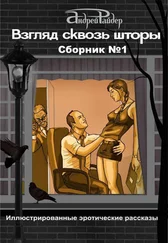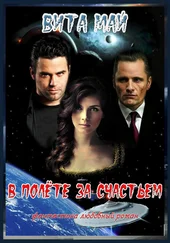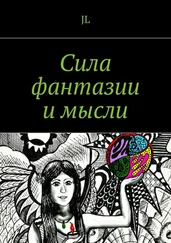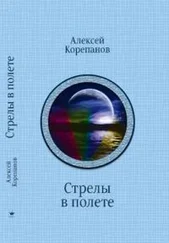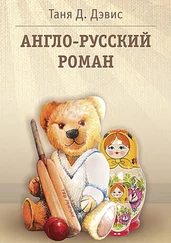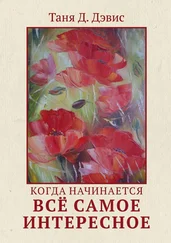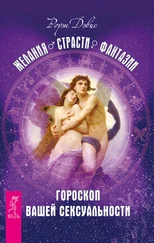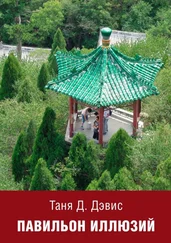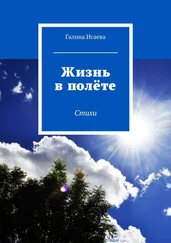Таня Д Дэвис - Полёт фантазии, фантазии в полёте
Здесь есть возможность читать онлайн «Таня Д Дэвис - Полёт фантазии, фантазии в полёте» — ознакомительный отрывок электронной книги совершенно бесплатно, а после прочтения отрывка купить полную версию. В некоторых случаях можно слушать аудио, скачать через торрент в формате fb2 и присутствует краткое содержание. Год выпуска: 8, Жанр: Современная проза, на русском языке. Описание произведения, (предисловие) а так же отзывы посетителей доступны на портале библиотеки ЛибКат.
- Название:Полёт фантазии, фантазии в полёте
- Автор:
- Жанр:
- Год:8
- ISBN:нет данных
- Рейтинг книги:4 / 5. Голосов: 1
-
Избранное:Добавить в избранное
- Отзывы:
-
Ваша оценка:
- 80
- 1
- 2
- 3
- 4
- 5
Полёт фантазии, фантазии в полёте: краткое содержание, описание и аннотация
Предлагаем к чтению аннотацию, описание, краткое содержание или предисловие (зависит от того, что написал сам автор книги «Полёт фантазии, фантазии в полёте»). Если вы не нашли необходимую информацию о книге — напишите в комментариях, мы постараемся отыскать её.
Полёт фантазии, фантазии в полёте — читать онлайн ознакомительный отрывок
Ниже представлен текст книги, разбитый по страницам. Система сохранения места последней прочитанной страницы, позволяет с удобством читать онлайн бесплатно книгу «Полёт фантазии, фантазии в полёте», без необходимости каждый раз заново искать на чём Вы остановились. Поставьте закладку, и сможете в любой момент перейти на страницу, на которой закончили чтение.
Интервал:
Закладка:
Sarah Belch waited for Steve Martin but he never turned up. When she learned about his death in the car accident she sighed with relief. «Saved», — she said to herself and a radiant smile lit up her charming face.
At the cosy office of the Human Soul Travellers Club the Chinese-looking secretary was busy with the two cheques, which Mr. Toffiles had just brought. He was evidently pleased with himself and was happily humming his favourite tune «Everything’s going my way».
«You could have done better business, Mr. Toffiles», — said the porcelain beauty, when she finished counting, — «if you sold human souls, not just transplant organs for operations».
Mr. Toffiles laughed in reply. — «Business in human souls? You know, Margaret, the world has changed greatly over the last one hundred years. Life has lost its spirit and people have become low materialists. They are not interested in pure souls any longer. Who will buy a perfect sinless human soul today? Nobody needs it…»
Mind the Gap
«Breaking down stereotypes is not just realising that people are not the way one thought they were, or that deep down «we are all the same».
It is understanding that we are irreducibly unique and different, and that I could have been you, you could have been me, given different circumstances. In other words, that the stranger as Kristeva says, is in us…»
«The Cultural Component of Language Teaching» by Claire Kramsch, British Studies Now, N 8, 1996West Acton. The doors closed with a characteristic beep of London underground and Tanya began looking through «The Times» she had bought a few minutes earlier at Ealing Broadway. She smiled as her eye fell on a big cartoon: a black man sleeping on a bench with a bulldog by his side, the latter chewing ferociously the sign «No dogs, no Irish, no blacks». «Whatever happened to the melting pot?» — big letters of the headline inquired.
«The UK’s ethnic minority population is large and growing. Now totalling more than 3 million (nearly 6 per cent of the national population) it is expected to double over the next 30 years. Immigration to the UK has focused overwhelmingly on a few large cities, particularly London» — read Tanya and paused casting a glance around.
True. London underground features colours of every ethnic hue: white, black, yellow and what not. An opposite seat was occupied by an Indian family: women in saris and sandals with a bunch of noisy children. Then there was a tired middle-aged woman unmistakably Chinese, a young man with dark curly hair and olive skin immersed in reading a book in Arab, a huge black youth, his eyes hidden behind sunglasses, his ears blocked by earphones, his jaws chewing violently and his feet in enormous boots moving to the silent rhythm that only he could hear. True, she reflected, the UK’s ethnic minority population is large and growing, at least in London.
«A little over half of the UK’s ethnic minority population is from the South Asian subcontinent — India, Pakistan and Bangladesh. A quarter are black with the remainder predominantly mixed race or Chinese » — she read on and reflected — «Well, it’s not not only a question of where the people come from ethnically. It’s basically the question of the natural balance of colours. Dark hues gradually ousting the light ones. So many young people in London wearing black. The majority of young girls dressed in black from head to heals, as if they all were attending a secret funeral. Very annoying». Tanya’s eyes intuitively started searching for some light patches in the predominantly dark palette of London underground.
North Acton. The doors opened letting in a tall white man in a grey suit with an elegant brief-case and a big umbrella. «Very smart», — noted Tanya as he took a seat opposite her. A bank manager? A successful businessman? In Russia men like that don’t travel by underground, they proudly drive Mercedes or Volvo cars. As the tall gentleman buried his face in «The Evening Standard» Tanya gave him another look: middle-aged, must be in his forties, fair hair with a red hue, a bit longuish, which gave to his basically businesslike image a slightly bucaneerish touch, freckled hands… «Freckles. Red hair and freckles. Must be Irish,» — thought Tanya and smiled remembering the cartoon. The man intercepted her scrutinizing look and gave her a quick warning smile. «It’s impolite to stare» — his cool grey eyes were saying. She smiled back apologetically and turned to the article she had been reading.
«Successful social integration bears a myriad of faces — education, tolerance, inter-marriage and entry to the public services and elite professions being the obvious. Today, Britain’s elite remains virtually impregnable to non-whites, and the only blacks and Asians in the palace of Westminster are still the catering and supporting stuff…»
True… Yet to her foreign eye the ethnic situation in Britain didn’t look so black, or better to say so hopelessly white: there were black news presenters on British TV. A markedly increased number of coloured students at British universities, not mentioning some districts of London turning completely dark. Take Southall, for instance. Besides, it wasn’t just the matter of ethnic tolerance and integration, it was something more delicate and complicated, something that had to do with the natural balance of colours. Perhaps, if English winter were whiter and snowier, the Brits wouldn’t mind having more blacks in their Parliament. Tanya smiled at such politically incorrect thought.
East Acton. The black youth in huge boots continued his silent dance, reminding a big marionette, whose master had forgotten to switch on the music. Tanya looked at his feet, performing some strange convulsive steps. «No, definitely he is not listening to Tchaikovsky», — she reflected. «Has he ever heard of Tchaikovsky?» — she wondered and closed her eyes, going back to one of her childhood memories. She, an eight year old girl then, her chestnut hair arranged beautifully in a plait with a blue ribbon, her white dress decorated with the blue belt, playing the white concert piano in the dining-room of Tchaikovsky’s house in Votkinsk — a small town in the Urals where the great composer was born. As one of the best pupils of the piano class she had been granted the honour to play the Tchaikovsky’s piano. It was the only white concert piano she had ever played, all the others were traditionally black. Tanya sighed and opened her eyes.
«White City» — the station board read. White City. White snow. It was like the word «white» itself had triggered the intricate mechanism of her memory, and in a moment her mind was carrying her back again to another far away picture of her childhood. White snow. Yes, that’s what she was subconsiously missing so much amidst grey and snowless London winter. She suddenly realised how hungry her eyes were for those gorgeously white snowfields she used to ski across as a child, She strained her memory trying to revive her favourite picture. Yes, that’s how it was. She was eight then, a little girl in a bulky fur coat — shuba , and big Russian snowboots « valenki » was making her way across the snowfield which separated the forest from the lake. Her feet went deep into snow as she walked to the edge of the lake, her tiny figure representing the only dark dot on the virginally white space, glistening luxuriously in the sunrays. She reached the lake and stopped enchanted, for at its edge the ice was absolutely transparent and she could easily see through it: some greenish-brown water plants, a pack of small fish moving lazily to and fro, air bubbles making funny pictures on their way up. She stepped cautiously on the ice. How queer. As if she were walking on the acquarium glass. She moved a bit further and her feet in valenki glided on the smooth ice surface. She made a few skating steps and laughed happily, the sound of her laughter carrying far in the air and breaking the winter silence. There was nobody around. She was alone in that dazzlingly white world, superb in its perfect purity, impeccable and wise. A snowy Princess walking around her white premises. She picked up a piece of ice and threw it up, the ice glistened brightly in the sun and fell breaking into a hundred of tine splinters. And then she saw it. Something that made her remember that day for the rest of her life — a bright colourful butterfly, its wings fluttering with yellow, orange and red, floated graciously in the air right in front of her nose. A painted lady! A feast of summer colours amidst white winter. (Actually it wasn’t winter, but spring, the 31 stof March, but snow stays long in the Urals and butterflies appear very early provided the sun is warm enough). Tanya smiled at her memories. How far away that little girl seemed now from her present day grouwn up self.
Читать дальшеИнтервал:
Закладка:
Похожие книги на «Полёт фантазии, фантазии в полёте»
Представляем Вашему вниманию похожие книги на «Полёт фантазии, фантазии в полёте» списком для выбора. Мы отобрали схожую по названию и смыслу литературу в надежде предоставить читателям больше вариантов отыскать новые, интересные, ещё непрочитанные произведения.
Обсуждение, отзывы о книге «Полёт фантазии, фантазии в полёте» и просто собственные мнения читателей. Оставьте ваши комментарии, напишите, что Вы думаете о произведении, его смысле или главных героях. Укажите что конкретно понравилось, а что нет, и почему Вы так считаете.

